cse15l-lab-reports
How to log into a course-specific account on ieng6:
click here to go back to index page
Note: these are the instructions for a Mac and Windows might need extra steps
1. Installing VScode
To download VSCode, you go to the website and download it (in this case, the version for a mac). When you open VS Code, it should look like this:
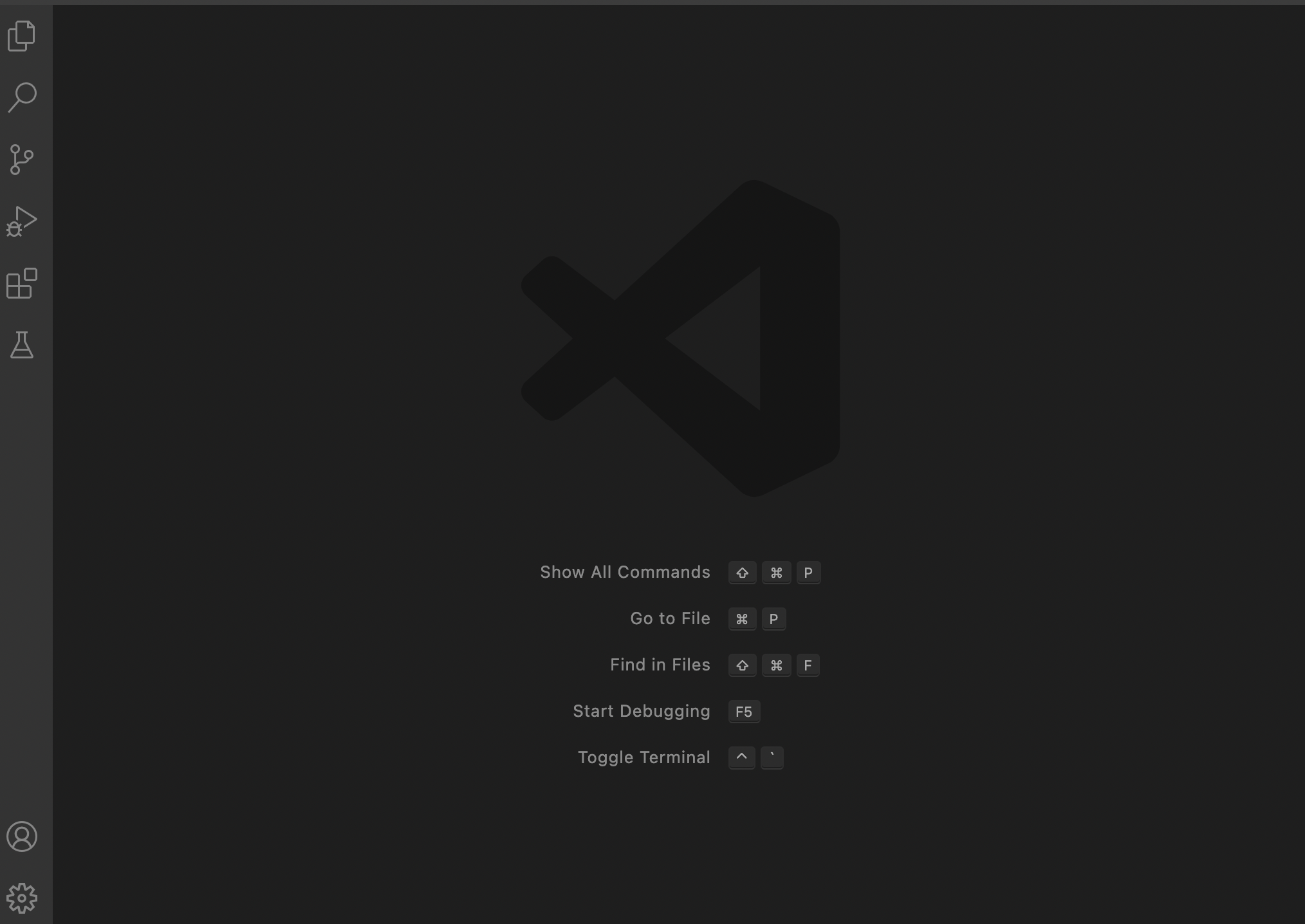
2. Remotely Connecting
In order to remotely connect, you must first search up your course-specific account on this website.
The username should look something like this

After you have logged in using your username and your student ID, you can use the following command “ssh cs15lwi22zz@ieng6.ucsd.edu” to connect to the server– only you must replace “zz” with whatever your account says (mine says “alt”). Next, it prompts you to enter your password, though you won’t be able to see you’re typing it. You are then logged in, and it should look like this:
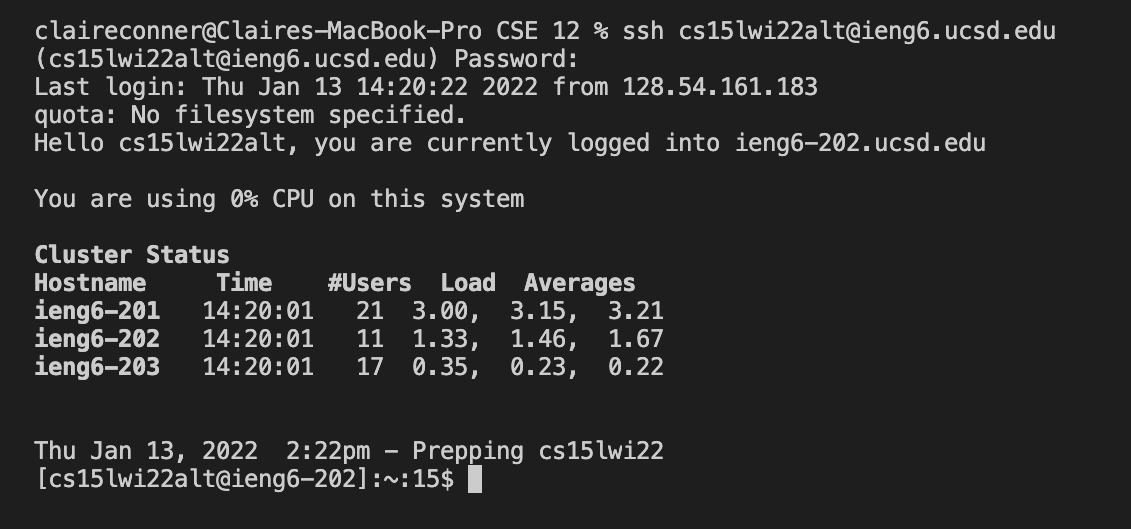
3. Trying Some Commands
The first command I have run on the server is the ls -lat command, which displays all of the files in the current directory.
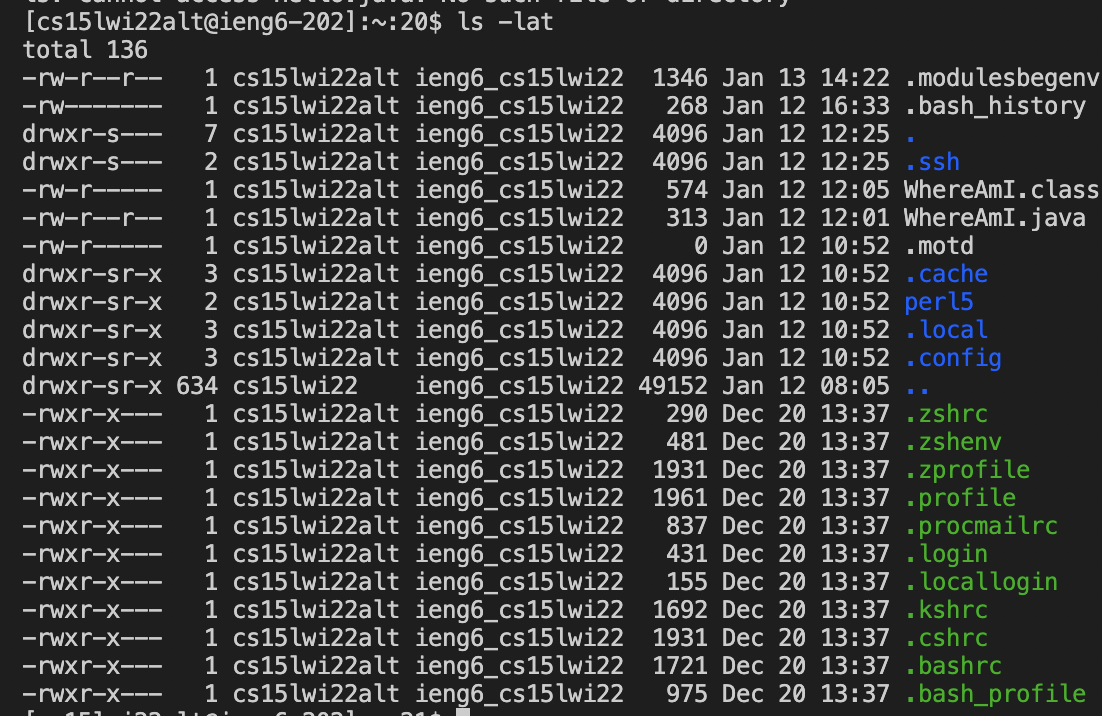 The second command I have run on the server is
The second command I have run on the server is pwd, which prints the path of the current directory.
 Another command is
Another command is ls, which lists the files in the current directory.

Note: in order to sign out of the server, you can use the command exit
4. Moving Files with scp
If you run the following commands, it will allow you to copy a file onto the server and run it there– in this case the file is called WhereAmI.java
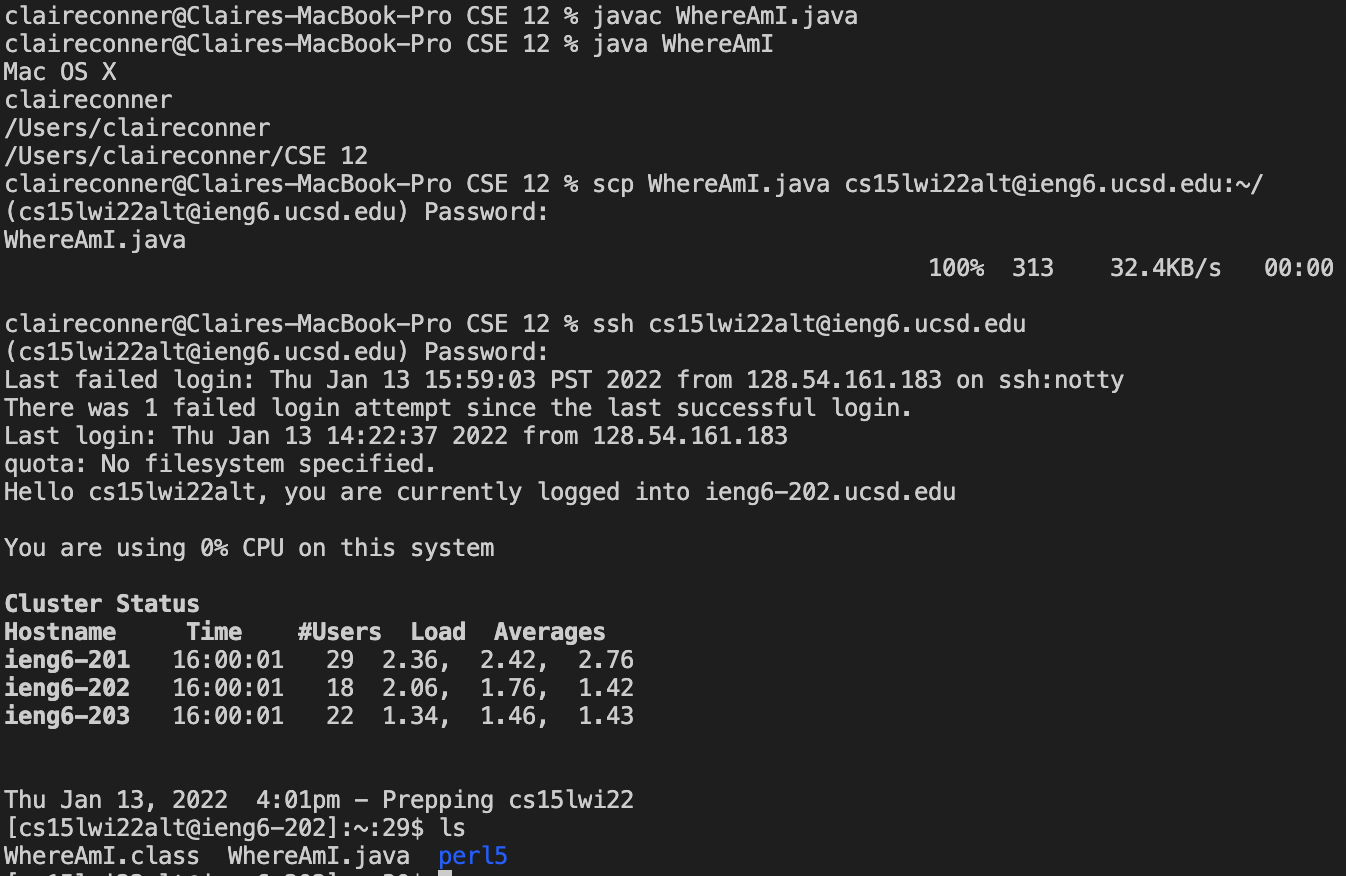
5. Setting an SSH Key
Setting the ssh key (as shown below) allows you to skip the process of entering a password each time you login to ieng6. This saves a decent amount of time.
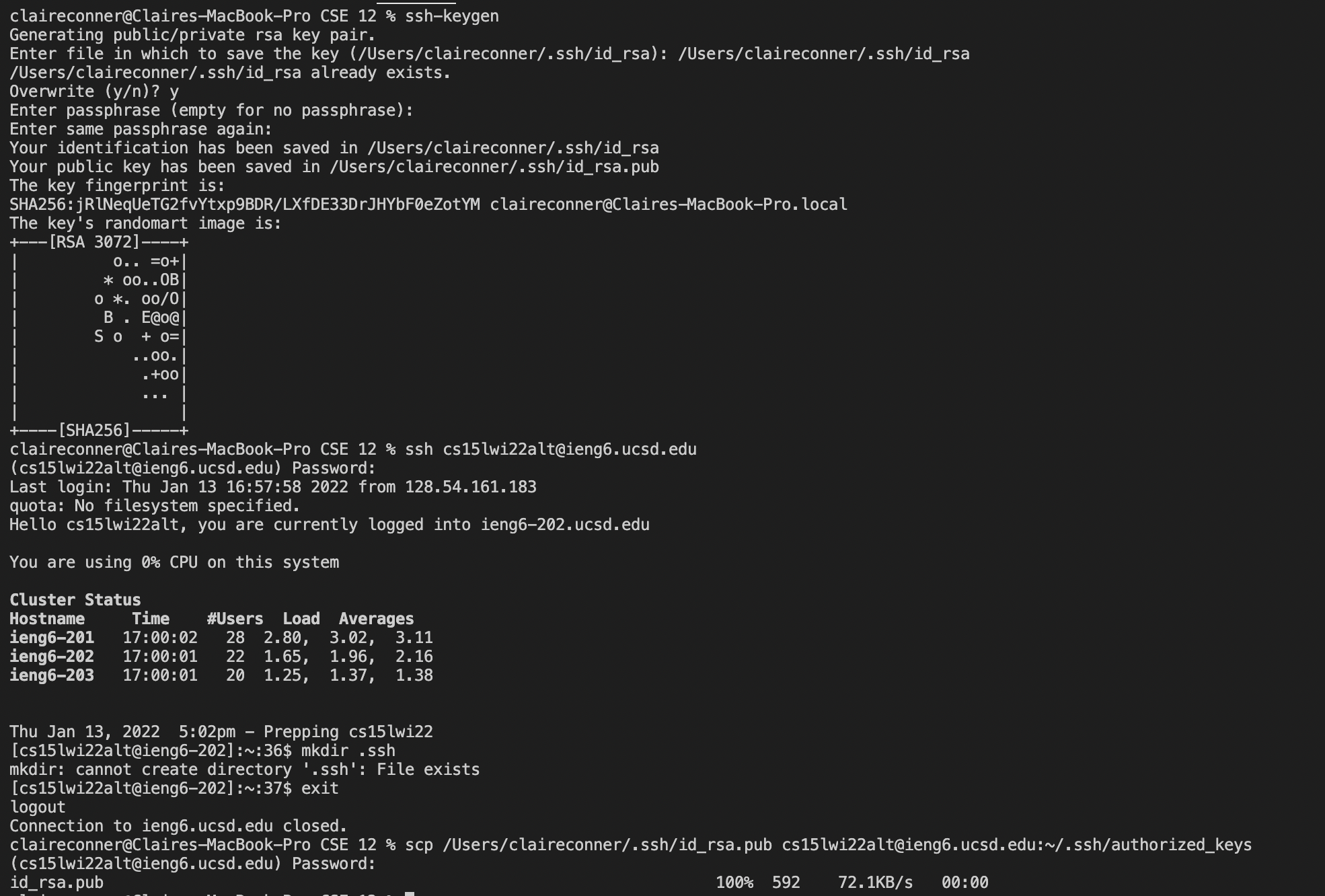
6. Optimizing Remote Running
To decrease the amount of time it takes to run even further, you can run commands at the same time as you log into the server:
 You can even do this and run two commands at the same time:
You can even do this and run two commands at the same time:
 Another option to decrease remote runtime would be to use the up arrow to run past commands (or to slightly modify past commands). When doing this as opposed to typing out the commands by myself, it decreased my runtime by about 20 seconds, which is a lot. This limits keystrokes too, which contributes to the reason why it takes less time.
Another option to decrease remote runtime would be to use the up arrow to run past commands (or to slightly modify past commands). When doing this as opposed to typing out the commands by myself, it decreased my runtime by about 20 seconds, which is a lot. This limits keystrokes too, which contributes to the reason why it takes less time.